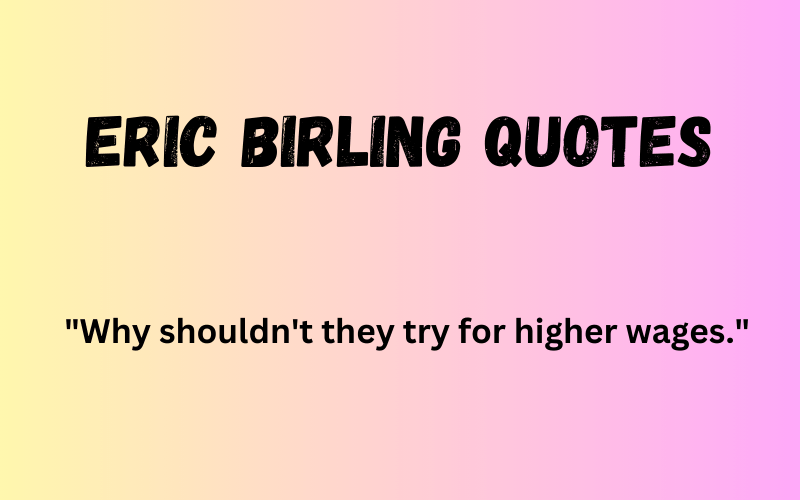
Eric Birling, a character in J.B. Priestley’s play “An Inspector Calls,” is a complex individual whose quotes provide insights into his personality, struggles, and the socio-economic themes of the play. Examining key quotes from Eric sheds light on his internal conflicts, relationships with his family, and his evolving understanding of social responsibility.
The first stage direction describing Eric as “Half-shy, half-assertive” sets the tone for his character. This duality hints at a troubled individual with conflicting traits. Eric’s uncomfortable behavior and foreshadowing of his drinking problem contribute to the audience’s initial confusion about his character. The contrast between “shy” and “assertive” reflects the internal struggles he faces, foreshadowing the revelations that unfold later in the play.
“I don’t even remember—that’s the hellish thing.” Eric’s admission reflects the gravity of his actions and the remorse he feels. The use of “hellish” suggests religious connotations, indicating his belief that he has committed something morally reprehensible. Eric’s vagueness about the details of his actions may be attributed to shame or the impact of alcohol on his recollection.
“Why shouldn’t they try for higher wages.” This quote highlights Eric’s early advocacy for the lower class, challenging his father’s views. It foreshadows Eric’s transformation into a socialist, aligning with Priestley’s socio-political perspectives. Eric’s willingness to challenge his father shows a rift in their relationship, setting the stage for deeper family tensions.
“You’re not the kind of father a chap could go to when he’s in trouble.” This personal revelation exposes the strained relationship between Eric and his parents. His critique of his father’s obsession with money and business reveals emotional neglect. Eric’s vulnerability makes him a sympathetic character, as the audience recognizes his struggle for acceptance and understanding.
“She was a good sport.” Eric’s patronizing description of Eva Smith as a “sport” reveals his immature and disrespectful attitude. This objectification reflects societal attitudes towards the lower class during that era. Eric’s realization of the inappropriateness of his actions adds depth to his character, showcasing growth and self-awareness.
“I was in that state when a chap easily turns nasty.” By acknowledging the negative effects of alcohol on his behavior, Eric demonstrates self-awareness and regret. This quote signifies his recognition of the harm he caused to Eva Smith and the need for personal reform.
The additional analysis of Eric’s character brings out crucial aspects of his role in the play. His initial laughter, fueled by alcohol, foreshadows the tragic consequences of his actions. Eric’s perspective on war emphasizes the interconnectedness of society, reinforcing the play’s central theme.
Furthermore, his critique of capitalism and support for higher wages highlight Priestley’s social commentary. Eric’s realization that his father’s actions initiated Eva’s tragedy emphasizes the repercussions of individual choices on a broader scale.
In Act 2, Eric’s revelation of his affair with Eva adds complexity to his character. The irony of his request for a drink, considering his alcohol issues, adds a layer of dark humor. This moment also underscores the inadequacy of wealth in ensuring happiness.
Eric Birling’s quotes in “An Inspector Calls” offer a nuanced portrayal of his character, exploring themes of morality, social responsibility, and familial relationships. Priestley masterfully crafts Eric’s journey, allowing the audience to witness his growth and self-awareness amidst the unfolding drama.




